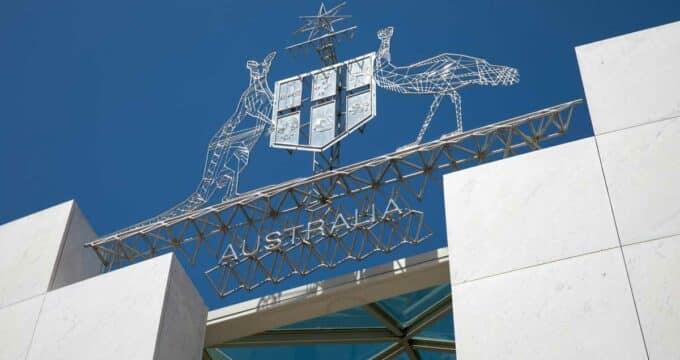ICEF announces new agent code of conduct
- ICEF has expanded and further strengthened its ICEF Agency Status (IAS) accreditation programme
- There are currently over 1,500 education agencies in 115 countries who have been accredited and have ICEF Agency Status, comprising the largest network of accredited agencies in the industry
- ICEF has also established a new Code of Conduct for education agencies – a set of best practices that all IAS agencies are now required to endorse
The following article is adapted from the upcoming edition of ICEF Insights magazine. The print edition will be available at ICEF Berlin with the digital edition freely available to download as of 2 November 2023.
The article also departs somewhat from our normal coverage on ICEF Monitor, in that it is explicitly concerned with a new initiative from ICEF. We don't normally highlight ICEF's programmes and services in our ongoing coverage but we're making an exception in this case as we believe the subject is especially relevant and important for our readers.
The international education marketplace is more complex than ever. A greater number
of destinations – and education institutions – are competing for students’ attention. The range of available study programmes has expanded and now includes online and hybrid modalities. Students consider not only course content, but also scholarships, internships, and post-study work and permanent residency opportunities.
As a result, both students and educators are increasingly turning to agents for support. Students rely on agents to help them to plan study abroad, compare options, and apply to institutions. Institutions appreciate the local expertise and connections of agents when diversifying their markets, promoting a wider variety of programmes, and communicating across languages, religions, and cultures.
Greater use of agents has underscored the need for improved quality standards for institution-agency collaborations. Several best practice guidelines now exist, some developed by governments and peak bodies and some created by other stakeholders.
Despite having been developed at different times and in different contexts, the resources listed below all aim to codify best practices for educators and agents alike. Persistent themes include honesty, accountability, and transparency in agency-educator partnerships and in communications and transactions with students.
- The London Statement framework (formally, The Statement of Principles for the Ethical Recruitment of International Students by Education Agents and Consultants)
- The Guide to International Student Recruitment Agencies from the National Association for College Admission Counseling (NACAC)
- The National Code of Ethical Practice for UK Education Agents from British
- Universities’ International Liaison Association (BUILA)
- The Australian Agent Code of Ethics (ACE)
- Best Practice Guidelines for Institutional Members from the Association of International Enrollment Management (AIRC)
- Best Practice Guidelines for Education Providers and Agents from The Association of Language Travel Organisations (ALTO)
A new code of conduct governing ICEF-approved agencies
For the past year, ICEF has been engaged in a process of deep reflection on these important themes, leading to the development of our own Code of Conduct. This is a code of practice that agencies are now required to endorse and comply with in order to establish or maintain their ICEF Agency Status and their eligibility to attend ICEF events.
“The increasing use of education agents in international recruitment also underscores the need for improved quality standards,” says ICEF CEO Markus Badde. “The number of active agents continues to grow quickly yet the sector still remains largely unregulated. For decades we have consistently worked to advance professional standards in international student recruitment by screening, training and accrediting education agencies. Given current circumstances we feel there is now a need to do more. Over a year ago, we introduced block chain technology enabling students, parents, and educators to easily and instantly verify an agency's IAS accreditation. Now we have gone even further with the implementation of a more in-depth vetting process for participating agencies, with increased agent monitoring and quality assurance measures carried out by ICEF’s globally distributed Agents Relations team.”
There are currently over 1,500 education agencies in 115 countries who have been
accredited and have ICEF Agency Status - a designation that is valid for one year and for which the vetting and review process is refreshed annually. This fast-growing base of IAS agencies already represents the largest network of accredited agencies in the industry, and, as such, represents a new global standard for agency recognition and quality assurance.
"Having a trusted source of accredited agencies around the world is imperative, particularly at a time when lower barriers to entry have created a proliferation of new agency players” says ICEF's Executive Director for Agent Relations Tiffany Egler. “With the ICEF Code of Conduct in place, and with the steps we have taken to expand the IAS programme, schools, colleges, and universities can now be better assured that they are working with professional organisations to ensure the best possible outcomes for their international students."
The complete code appears below, and we hope it will be helpful both for educators
working with agents and for agents who aim to distinguish themselves in an increasingly competitive marketplace.
ICEF Code of Conduct for the Ethical Recruitment of International Students
Agency owners and executives are straightforward, transparent, and accountable at all times and in all dealings with staff, institutions, students, parents, and other stakeholders. This includes ensuring that they and their staff are:
- Acting fairly and in the best interests of both students and institutional partners.
- Providing current, accurate, and honest information.
- Providing realistic and appropriate information that is tailored to the individual student, particularly in relation to language ability, financial capacity, and intended study programme.
- Ensuring that visa and admissions applications are free of any fraudulent or misleading documents or representations.
- Being transparent in all business dealings and advisory services, including avoiding any conflicts of interest or misrepresentation.
- Prioritising the use of signed agreements or contracts between the agency and the institution and being transparent with both students and receiving institutions in cases where a student may be referred outside of any such formal agreement.
- Disclosing to partner institutions whether any contracted subagents may play a role in recruitment and ensuring appropriate oversight or quality assurance measures to monitor subagent compliance with this code of conduct.
- Preserving the confidentiality of all personal and business information.
- Ensuring that minor students have adequate representation and support from a parent, guardian, and/or legal counsel.
- Representing accurately the rights and responsibilities of the student in their intended destination country.
- Complying with all relevant laws and regulations in both the agent’s home country and the student’s intended destination.
- Promoting a government or industry endorsement – including the use of any official brand marks – only with the approval of the endorsing body.
- Using an institution’s officially approved material, including branding or any official marks, only in cases where a written agreement with that institution provides for such use.
- Ensuring that all advertising and marketing materials are free of misrepresentation and comply with both local advertising standards and the brand guidelines of partner institutions.
- Ensuring the quality of the student experience through effective mechanisms to gather feedback and otherwise monitor a student’s progress in their study abroad destination.
- Establishing clear processes for handling complaints and resolving disputes.
- Participating in appropriate industry training programmes where possible and appropriate, as well as training and site visits specific to individual institutions.
- Maintaining membership in appropriate professional associations and other standards-based bodies, where possible and appropriate.
- Working with stakeholders and colleagues to advance industry standards and best practices.
- Maintaining all required business licences and/or registrations.
For additional background on the ICEF Agency Status programme, please see www.icef.com/ias.
















